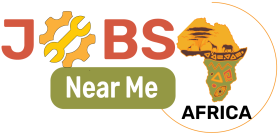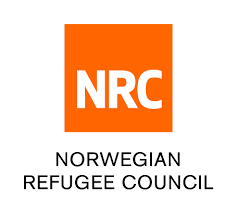Deadline 12:00 AM 18th September, 2023 | Monitoring and Evaluation Officer Kampala | Uganda | NRC
location: Uganda, Kampala
Application First-Time Only
Responsibilities
- Monitoring and Evaluation Officer Kampala | Uganda | NRC, Grade 5 Reports to: Monitoring and Evaluation Coordinator Is under the direction of: N/A Station of employment: Kampala Area Office 30 percent of travel is to Isingiro and Kyangwali A number of projects Contract type and duration: 12-month term with potential for extension
- A non-governmental, humanitarian organization called the Norwegian Refugee Council (NRC) has spent the last 75 years assisting in the creation of a safer and more respectable living for those who have been affected by displacement. Through its core competencies (CCs)—Protection from Violence, Education, Livelihoods and Economic Inclusion, Information Counseling and Legal Assistance, Shelter & Settlement Development, and Water, Sanitation & Hygiene—NRC Uganda promotes the rights of displaced populations and provides assistance.
- The organization’s basic principles of commitment, creativity, diversity, and accountability are demanded of every NRC employee. These attitudes and beliefs will direct our behavior and interactions.
- roles and obligations The MEL Officer will work with the MEL Coordinator/Manager to improve the systems and procedures used for monitoring, evaluating, and learning throughout all of NRC’s area programs in Uganda. The MEL officer’s responsibility is to put NRC MEL systems into practice in order to support internal management, program and project performance, and evidence-based decision-making. She or he facilitates the gathering, management, and validation of data as well as data analysis.
responsibilities in general
- Support the creation and improvement of Monitoring, Evaluation, and Learning (MEL) systems, including learning and accountability, as well as the production of trustworthy data for the MEL unit’s results-based management and improved project execution.
- Support the creation of fresh project ideas, including the creation of logical frameworks, and collaboratively establish attainable, gender-sensitive goals and indicators.
- Together with project workers, develop and maintain monitoring performance measurement tools such quality standards and indicators and performance tracking.
- with field workers and in conjunction with the MEL Coordinator, conduct and supervise routine field monitoring and evaluation visits to ensure technical and operational compliance and prompt project execution in accordance with approved plans and targets.
- Support the creation and implementation of methodological frameworks for project evaluations, surveys, and monitoring schedules.
- assistance with the analysis of quantitative data and the creation of reports for periodic evaluation, surveys, and other specialized studies connected to surveys.
- In order to ensure compliance with important project indicators and objectives, assist project management with the timely submission of donor reports.
- Plan and carry out Project employees as needed for capacity-building activities linked to monitoring and evaluation.
- Support project employees with course documentation and after action reviews.
- Encourage the measurement of project deliverables and interim results.
- Encourage the project’s enhanced information management systems to be developed.
- carry out any additional tasks that may be allocated.
- particular obligations
- MEL System Planning and Maintenance
- Make sure that data is reported on NRC Global Output & Outcome (GoR)s in a timely and accurate manner, including by adding an entry (Data Configuration) for new projects, all the while ensuring that the data is obtained ethically.
- helping to plan, develop, and carry out MEL activities, desk reviews, research plans, needs analyses, context analyses, and case studies utilizing a variety of quantitative and qualitative techniques
- The MEL pack, which consists of the IPTT (Indicator Performance Tracking Table), Log Frame, Activity Tracking Table, Theory of Change, and MEL Plan, was designed and reviewed by you. Keep your IPTT and output tracker up to date.
- Contribute to the execution of the Safe and Inclusive Programming minimal standards through, among other things, participating in pertinent SIP capacity building, designing tools with SIP in mind, and collecting and analyzing data.
- By supporting, implementing, and coordinating the standardized information flow of M+E activities and reporting, you can help establish a data management system.
Beneficiary Accountability
- Travel to project locations to manage helpdesks and awareness sessions with the communities (as necessary), in cooperation with MEL Officers and CFM focal points.
- Make sure beneficiaries, project employees, and other stakeholders are informed about complaints management procedures, rules, and tools through a variety of communication channels.
- Conduct spot inspections and accountability surveys on a regular basis to make sure beneficiary issues are being handled.
- Support for the Programme
- Initiate the LKM framework’s implementation and maintain the consortium’s LKM system and capabilities.
- assistance in uniformizing M+E across projects
- As required, assistance in creating the tools and methods for data collection.
- As required, assistance with data administration and creation of a transparent information flow between program and M+E staff.
- Make sure that managerial staff and appropriate program staff receive timely reports of monitoring data.
- Building staff capacity and providing M+E technical and conceptual training as necessary.
- Management of knowledge and the learning culture
- gathering problems and success stories from the field regularly for all programs.
- assisting with the regular program review activities and learning/reflection meetings to assess the program’s progress toward its objectives and results.
- Develop, store, and share knowledge (most significant change story, meta-analysis, research/evaluation summary reports, etc.) in close collaboration with the project team.
- Encourage the use of newly acquired information and learning in decision-making and project improvement.
- Together with the program team and the MEL Manager, identify potential research and learning questions.
- Deliver in a timely way the MEL data and analysis required for internal and external reporting.
- supporting the recording and use of best practices, technical innovation, and lessons learned in project and MEL planning and design.
- Plan routine program reviews to encourage discussion and learning about project/program implementation.
- Distribute information, reports, publications, and take part in learning sessions to make sure that programming and advocacy are informed by the lessons learned.
Communication/Other
- With the Multi-CC Manager, Coordinators, and Area Manager, more activities were agreed upon and addressed.
- In order to facilitate lessons learned, coordinate with M+E professionals at partner agencies and peer organizations.
- essential connections
- The Department of Country Programs (CC Specialists, HOP, Grants team, MEL Unit, etc.)
- Managers of projects and programs from various field offices (Area Office)2
- MEL employees working at the field offices
- COMPETENCES 2. For a person and an organization to produce the required results, competencies are crucial. They fall into the following two groups and are applicable to all staff members: 1. Competencies for professionals These are the kinds of abilities, know-how, and practical experience necessary for successful performance.
Typical professional qualifications for this position:
- a bachelor’s degree at the very least in social science, economics, rural development, or a closely connected discipline.
- It is necessary to have previous monitoring and evaluation experience.
- Experience working for at least 5 years in an international NGO, ideally in a post-conflict or emergency situation, and with MEL capacity, research, and system building.
- Knowing how to monitor and evaluate relief and development initiatives using both quantitative and qualitative methods, as well as having experience with them.
- demonstrated capacity to teach various audiences new information through mentoring, training, and other formal and informal approaches.
- Knowledge of the English language (speaking, reading, and writing)
- fluency in local and refugee languages as well as Swahili
- knowledge of computers, particularly MS Office (Word, Excel)
- Skills, knowledge, and experience pertinent to the context (to be tailored to the particular position)
- Interpersonal and communication abilities that are good
- strong teamwork and organizational skills.
- Good cultural sensitivity and awareness
- Very personable, reliable, and discreet
- It is advantageous to have knowledge of NGO operations and the dynamics of the humanitarian sector.
- Good degree of quantitative analysis and Windows Excel competence (SPSS recommended).
- excellent English communication abilities
- Skills in facilitating, training, and presenting
- Ability to work unsupervised, independently, and under pressure.
- the capacity to achieve deadlines in circumstances with various tasks.
- the capacity to inspire and engage personnel in a difficult program area.
- a high degree of coordination
- Personality qualities strategically minded Organizing and producing results employing individuals communicating effectively and respectfully Analysing handling unsafe surroundings
Job Information :Monitoring and Evaluation Officer Kampala | Uganda | NRC
Job Reference Number 12216
Monitoring and evaluation of job categories
Date Posted: 9/5/2023, 11:53
Apply by 12:00 AM on September 18, 2023.
Bachelor’s Degree as Degree Level
Job Schedule Permanent
Places Kampala
Related Jobs
Monitoring and Evaluation Officer Kampala | Uganda | NRC To Apply CLICK HERE

